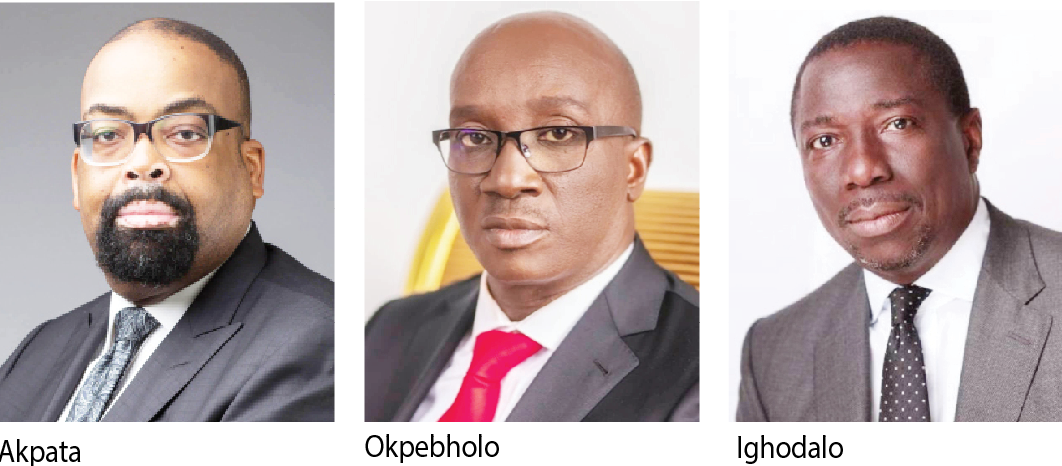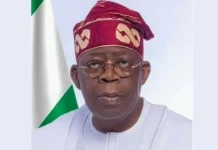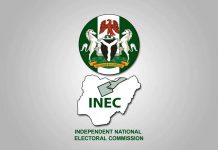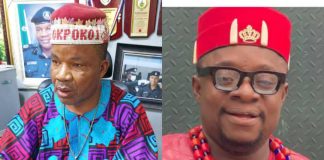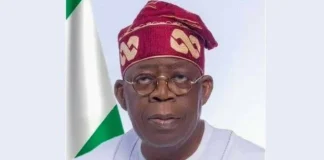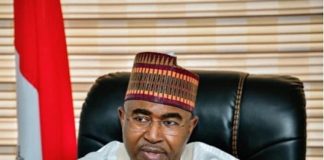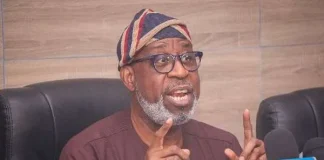🌿 Ruzu Non-Alcoholic Herbal Bitters
Ruzu Non-Alcoholic Herbal Bitters is a natural health supplement specially formulated to:
- ✅ Promote general wellness
- ✅ Detoxify the body
- ✅ Support the treatment of various ailments
Made from a powerful blend of 100% organic and medicinal herbs, Ruzu is completely alcohol-free, making it ideal for:
- 👪 All age groups
- 🌱 Health-conscious individuals
- 🌿 Anyone seeking non-alcoholic herbal remedies
Whether you're looking to boost your vitality, cleanse your system, or support healing the natural way, Ruzu Bitters offers a trusted herbal solution.
Wednesday, April 2, 2025, has been set aside by the Edo State Governorship Election Petition Tribunal for its judgment, report sources.
On Monday, the Independent National Electoral Commission (INEC) announced that Okpebholo of the All Progressives Congress (APC) had won the election that was held the previous year.
Okpebholo defeated Olumide Akpata of the Labour Party (LP) and Asue Ighodalo of the Peoples Democratic Party (PDP).
Remember how the PDP and its candidate, Asue Ighodalo, petitioned the Edo State Governorship Election Petition Tribunal to overturn the announcement that Okpebholo had won the governorship election on September 21, 2024? The tribunal had reserved decision in that case.
Alleging electoral irregularities such as over-voting, ballot non-serialization, erroneous collation, and computation problems, the PDP and Ighodalo are contesting the results declared by the Independent National Electoral Commission (INEC).
In order to bolster allegations of over-voting, the petitioners called 19 witnesses and subpoenaed a Senior Technical Officer from INEC’s ICT department during the tribunal hearings. The officer produced 154 BVAS machines.
In the EPT/ED/GOV/02/2024 lawsuit, INEC, Okpebholo, and the APC are the first and third respondents, respectively.
The petitioners’ accusations were not refuted by INEC calling any witnesses. Before concluding their defense, the APC called four witnesses, while Okpebholo only called one.
Under the direction of Justice Wilfred Kpochi, the three-member panel declared that the verdict would be delivered later and shared with all parties.
The Secretary of the tribunal will notify the parties of the date of the verdict. Justice Kpochi stated that the tribunal is on hold till that time.
The petitioners’ final written address was formally adopted earlier by Adetunji Oyeyipo (SAN), their main attorney. The tribunal was persuaded to dismiss the petition by INEC’s counsel, Kanu Agabi (SAN), who characterized it as having no merit.
Because they had all signed the result sheets, Agabi contended that the polling unit agents who testified “could not distinguish between what they heard and what they observed.” Additionally, he stated that the petitioners’ coverage of polling places was insufficient to justify the election’s complete voiding.
In order to be deemed winners, the petitioners have not offered any alternative outcomes. Agabi said, “Their case is based on analyses conducted by hired consultants,” characterizing their allegations of non-compliance as feeble and devoid of reliable proof.
Read Also: APC Appeals to South-South Governor to Accept Automatic Ticket
According to Onyechi Ikpeazu (SAN), the governor, the APC candidate won the election with legitimate votes. He disputed the petitioners’ claim that sensitive documents should not be serialized, stating that Form EC25B simply asks for the number of materials received and returned, not their serial numbers.
He further stated that none of the BVAS machines presented to the tribunal were opened for inspection, notwithstanding the petitioners’ claims of excessive voting. The petition, Ikpeazu claimed, was a “academic exercise” since “they failed to present the necessary documents to substantiate their claims.”
APC’s attorney, Emmanuel Ukala, also adopted its final address, saying that the petitioners did not provide enough witnesses to back up their allegations. He emphasized that no presiding officers were called to testify, and that just five polling unit agents—out of the state’s 4,000+ polling units—were called.
He emphasized the Supreme Court’s need that claims of non-compliance be supported by evidence from local government to local government, ward to ward, and polling unit to polling unit. Ukala continued, “The petitioners did not call enough witnesses or demonstrate how the BVAS machines operated.”
In response, the petitioners’ attorney, Ken Morzi (SAN), made it clear that their grievances only applied to 765 voting places, not the whole state. He maintained that the matter should be evaluated comprehensively rather than just by looking at the proportion of polling places that were contested.
According to Morzi, “We acknowledge that elections were held at the polling places, but we dispute how 25 votes were converted into 525 votes at the polling places.”
Defending all supplied documents as verified by INEC and tendered without objection, he also addressed claims of document dumping. Concerning the various outcomes, Morzi stated that the petitioners presented the tribunal with all of the information.

